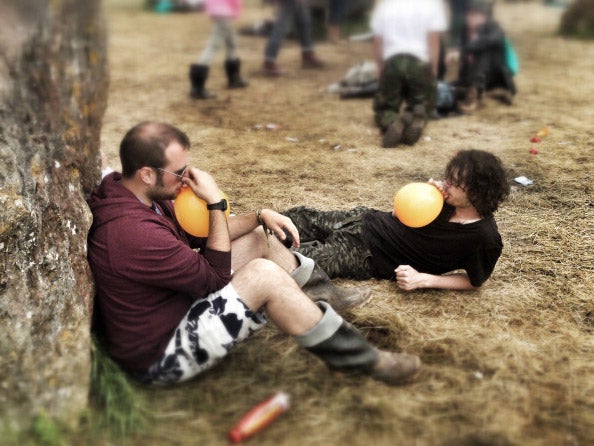Glastonbury bans 'hippie crack' from 'sacred' festival space
Organisers claim the 'damaging drug' has darkened the festival's atmosphere

Your support helps us to tell the story
From reproductive rights to climate change to Big Tech, The Independent is on the ground when the story is developing. Whether it's investigating the financials of Elon Musk's pro-Trump PAC or producing our latest documentary, 'The A Word', which shines a light on the American women fighting for reproductive rights, we know how important it is to parse out the facts from the messaging.
At such a critical moment in US history, we need reporters on the ground. Your donation allows us to keep sending journalists to speak to both sides of the story.
The Independent is trusted by Americans across the entire political spectrum. And unlike many other quality news outlets, we choose not to lock Americans out of our reporting and analysis with paywalls. We believe quality journalism should be available to everyone, paid for by those who can afford it.
Your support makes all the difference.Glastonbury's organisers aren't known for taking a hard line against drug use in the King's Meadow.
But they have now claimed that laughing gas - colloquially known as “hippie crack” - will not be welcome in one of the areas of the festival.
Seemingly objecting most to the silver canisters left behind by users of the legal high, Liz Eliot, the co-ordinator of Glastonbury’s Green Fields, wrote a statement for music fans warning that nitrous oxide is also nearly 300 times more damaging to the atmosphere than carbon dioxide.
“It breaks our hearts to see our Sacred Space used this way,” she said, going on to explain that an exploding canister was responsible for a “major injury” on the festival site last year.
The message, which she posted online, says that Glastonbury “has become known as a place where people take nitrous oxide, a damaging drug which pollutes our beautiful field with noise, litter and N20 gas”.
Two tonnes of empty canisters were reportedly picked up in the aftermath of Glastonbury 2014, an apparently unacceptable state of affairs for those who see the King's Meadow area, which is also known as the Stone Circle, as a spiritually important location.
A Home Office campaign last year on the risks of legal highs showed that laughing gas was the second most popular drug among young adults in 2013/14, after cannabis and was taken more widely than ecstasy or cocaine.
Professor Les Iverson, chair of the Advisory Council on the Misuse of Drugs (ACMD) said last month: “There has been a recent upsurge in the recreational use of nitrous oxide and it is now commonly available, often purchased in the form of gas-filled balloons.”
Ms Eliot concluded by appealing to fans to help organisers return Glastonbury to its traditional roots and to refrain from bringing the drug onto the site.
“Each year we come together to share the magic of this truly wonderful festival. Please show your love for the event and each other by showing your appreciation of the land and our spiritual connection to it,” she said.
Enjoy unlimited access to 100 million ad-free songs and podcasts with Amazon Music
Sign up now for a 4 month free trial (3 months for non-Prime members)
Enjoy unlimited access to 100 million ad-free songs and podcasts with Amazon Music
Sign up now for a 4 month free trial (3 months for non-Prime members)
“Help us – please do not bring nitrous oxide onto the site and support us by not using it in the King’s Meadow.”
Join our commenting forum
Join thought-provoking conversations, follow other Independent readers and see their replies
Comments